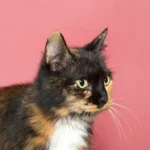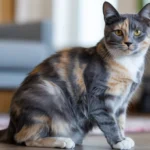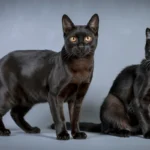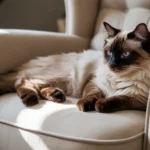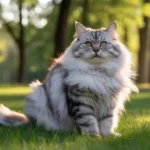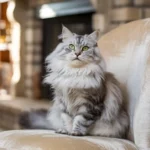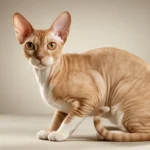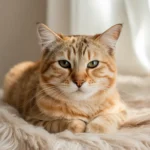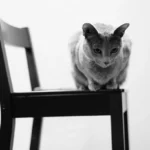What Makes the Orange Tabby Cat So Special?
With their fiery coats, playful personalities, and unmistakable charm, the Orange Tabby Cat is one of the most beloved feline companions worldwide. But did you know that “orange tabby” isn’t a breed? It’s a coat color and pattern. From genetics to behavior, there’s much more to these ginger cats than meets the eye.
Let’s dive into what makes these cats so unique—from their patterns and personalities to lifespan and breed associations.
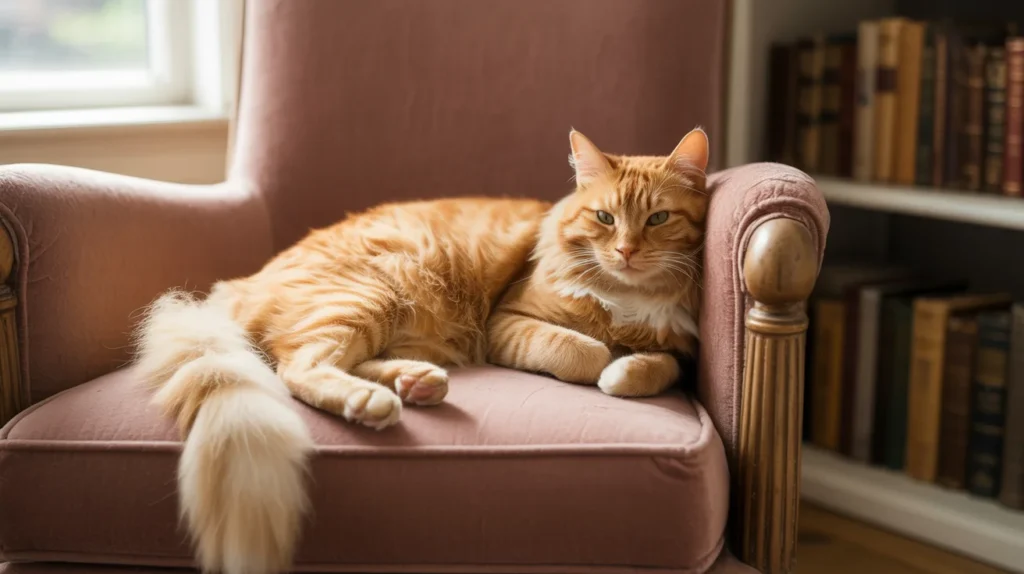
Content
Recognizing an Orange Tabby Cat
All Orange Cats share one key trait: they’re tabbies. Even if the stripes are faint, every orange feline carries the tabby gene. You’ll also notice a signature M-shaped marking on their forehead, a classic identifier of tabby cats.
Their fur can range from light ginger to deep reddish-orange, sometimes paired with cream or white patches.
5 Common Orange Tabby Patterns
Not all tabbies look alike. Your Orange Tabby Kitten may fall under one of several tabby patterns:
- Mackerel: Thin, vertical stripes that resemble fish bones.
- Classic: Bold, swirling patterns across the body.
- Spotted: Dotted with small round or oval spots—almost wild-looking.
- Ticked: Each individual hair has bands of color, giving a speckled appearance.
- Bicolor: A mix of orange tabby and white, typically on the chest, paws, or face.
These patterns can appear in a variety of breeds, contributing to the cat’s unique look.
Is Orange a Breed? Understanding the Genetics
There’s no such thing as an “Orange Tabby Cat Breed.” Orange is a color and pattern, not a breed. You’ll find orange tabbies in many breeds, including:
- American Shorthair
- Persian
- Maine Coon
- British Shorthair
- Exotic Shorthair
Their orange hue comes from a pigment called pheomelanin, the same compound responsible for red hair in humans. The gene responsible for orange coloration is located on the X chromosome—explaining why most orange tabbies are male.
Why Are Most Orange Tabbies Male?
About 80% of orange tabby cats are male. Since the gene for orange color is carried on the X chromosome, male cats (XY) need only one copy of the orange gene, while females (XX) need two. This results in a much higher number of male orange tabbies.
Orange Tabby Cat Lifespan
The average Orange Tabby Cat Lifespan ranges from 12 to 15 years, though many live longer with proper care. Factors influencing lifespan include:
- Genetics
- Diet
- Indoor vs. outdoor lifestyle
- Veterinary care
Indoor orange tabbies typically live longer due to fewer risks and a more controlled environment.
Orange Tabby Cat Personality Traits
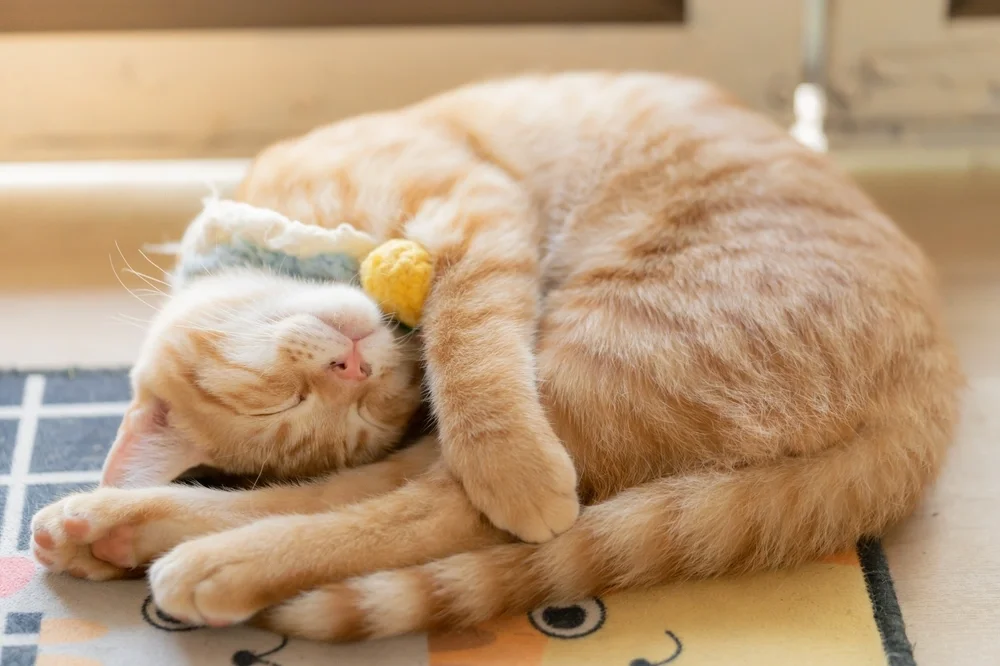
Owners often describe the Orange Tabby Cat Personality as outgoing, affectionate, and easygoing. While individual behavior depends on factors like breed and upbringing, orange tabbies are known for being:
- Friendly: They typically enjoy human interaction and make great companions.
- Affectionate: Many are lap cats that love being petted.
- Curious: Always exploring their surroundings.
- Playful: Especially as kittens, they are full of energy and love interactive toys.
- Vocal: They often communicate with chirps and meows.
Orange Tabby Cat Personality Male vs. Female
When discussing Orange Tabby Cat Personality Male, many people report that male tabbies are more laid-back, affectionate, and even a bit silly. Female tabbies, on the other hand, may be more reserved and independent, though just as loving.
Fun Facts About Orange Cats
- They’re pop culture icons: Think Garfield, Morris the Cat, and Puss in Boots.
- Regional names vary: In the U.S., they’re often called “orange” or “ginger,” while “marmalade” is more common in the UK.
- Not always striped: Some tabbies, especially ticked ones, can look almost solid in color.
- They inspire creativity: These cats often appear in art, books, and viral memes.
Caring for Your Orange Tabby Kitten
Bringing home an Orange Tabby Kitten is a joyful experience. Here’s what to keep in mind:
- Nutrition: Choose a high-quality diet tailored to your kitten’s age and breed.
- Grooming: Short-haired tabbies require minimal grooming; long-haired types may need regular brushing.
- Play: Offer plenty of toys, scratch posts, and climbing furniture to keep them active and engaged.
- Healthcare: Schedule regular vet checkups and vaccinations.
Are Orange Cats Smarter or Friendlier?
There’s no concrete scientific evidence that Orange Cats are more intelligent, but they often appear more emotionally expressive and friendly. Their sociable and affectionate nature makes them seem more in tune with their humans.
Should You Adopt an Orange Tabby?
If you’re looking for a loyal, entertaining, and loving pet, an orange tabby might be the perfect match. Whether it’s a mischievous kitten or a mellow adult, these cats bring warmth and joy to any home.
Remember, coat color doesn’t determine everything. Regardless of shade or pattern, every cat deserves love, care, and respect.
Final Thoughts: The Enduring Charm of the Orange Tabby Cat
With their warm coloring, engaging personality, and lovable quirks, Orange Tabby Cats have earned their spot in countless homes and hearts. Whether they’re chasing toy mice or curling up in your lap, they make every day a little brighter.
From genetics to behavior, these charming felines are anything but ordinary—and they might just be your next best friend.
Learn more about its benefits and uses in our complete guide on Gabapentin For Dogs.
FAQs
What is so special about orange tabby cats?
Orange tabby cats are known for their striking coat, playful nature, and strong bonds with humans.
Is an orange tabby cat rare?
No, orange tabby cats are quite common, especially among males due to their genetic makeup.
What is the difference between an orange tabby and a ginger tabby?
There’s no real difference—“orange” and “ginger” are just regional names for the same tabby coat color.
What is the temperament of an orange tabby cat?
Orange tabbies are often friendly, social, and affectionate, with a reputation for being laid-back and lovable.

Jerry takes a deep dive into the aquatic world. He’s your go-to for setting up the ideal fish tank, with expert advice on water quality and fish care.

